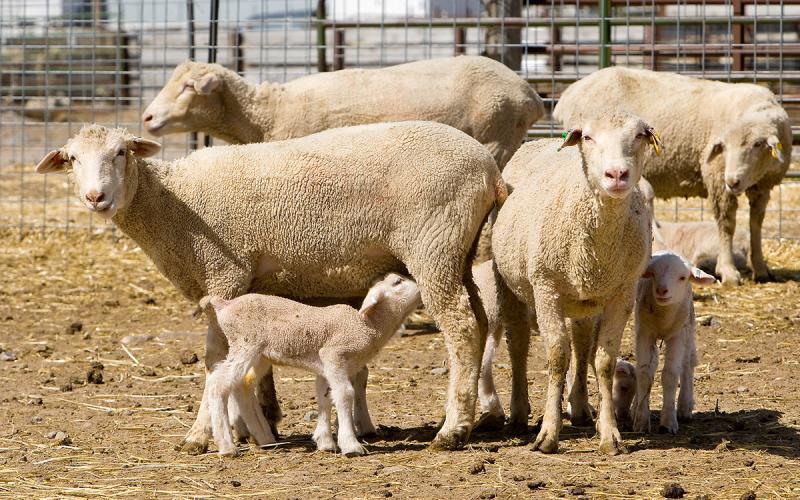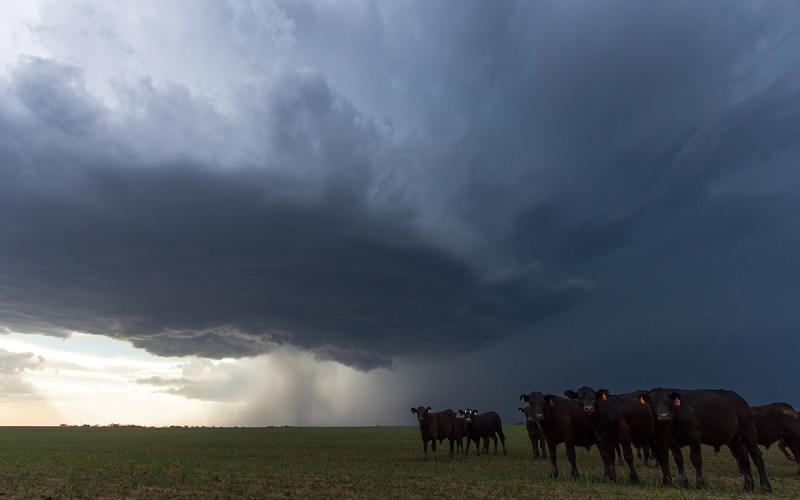Written by Megan Nielson, former SDSU Extension 4-H Youth Livestock Field Specialist.
About Sore Mouth (Contagious Ecthyma)
Just like in children or adults who contract the dreaded chicken pox, sheep and goats can catch their own similar “pox” virus called Sore Mouth, technically known as Contagious Ecthyma. This health problem is most recognizable by red blisters or thick brown scabs on the skin around the lips or muzzle area. Similar to chicken pox, an animal will only experience the signs of the disease once and be immune to that particular strain of sore mouth for the rest of its life.
Transmission & Symptoms
The Sore Mouth virus can harbor in barn or pasture areas for months, especially on feeding surfaces, but it also can be passed from animal to animal through old scabs containing the virus. Open sores or scratches on the skin are prime entrance points for the virus to enter its host. Most often, abrasions around the mouth caused by sheep or goats eating rough forages promote the continuous spread of the disease within a flock. Within approximately three days of a sheep or goat contracting the virus, red spots will form then blister and eventually scab over and heal (17 to 21 days after first appearance).
Sores on the mouth can cause pain for sheep or goats eating and in severe cases they will go off feed. Furthermore, nursing lambs or kids exhibiting signs of sore mouth may spread the virus to a ewe or doe’s udder area which may cause soreness and blisters on the teats. This problem can lead to ewes or does not allowing lambs or kids to nurse and cause starvation in their young while also potentially leading to mastitis in their udders.
Management
Special vaccines can be used to inoculate new animals in the ear or under a leg with a small dose of the virus to help reduce severity of the clinical signs. Purchased sheep or goats should be quarantined in order to allow any signs of sore mouth to show up before the new animals introduce a new strain of sore mouth to your flock.
Sore Mouth is a zoonotic disease which means it can be transmitted from sheep or goats to humans. Sore mouth or “orf” in humans will look like a blister or boil on the skin. Orf is not spread from human to human, however a doctor should be consulted for treatment. When animals exhibit signs of sore mouth, extra precaution should be taken to avoid contracting the disease. Wear gloves, wash hands and equipment, and avoid putting hands around infected areas. The same precautions should be taken when using the Sore Mouth vaccine.
Spring is a busy time on the farm with the introduction of new animals into new environments, it is important to monitor sheep or goats that exhibit signs of sore mouth to avoid future health problems. For more information about sore mouth and how to treat the symptoms, contact your local veterinarian.


